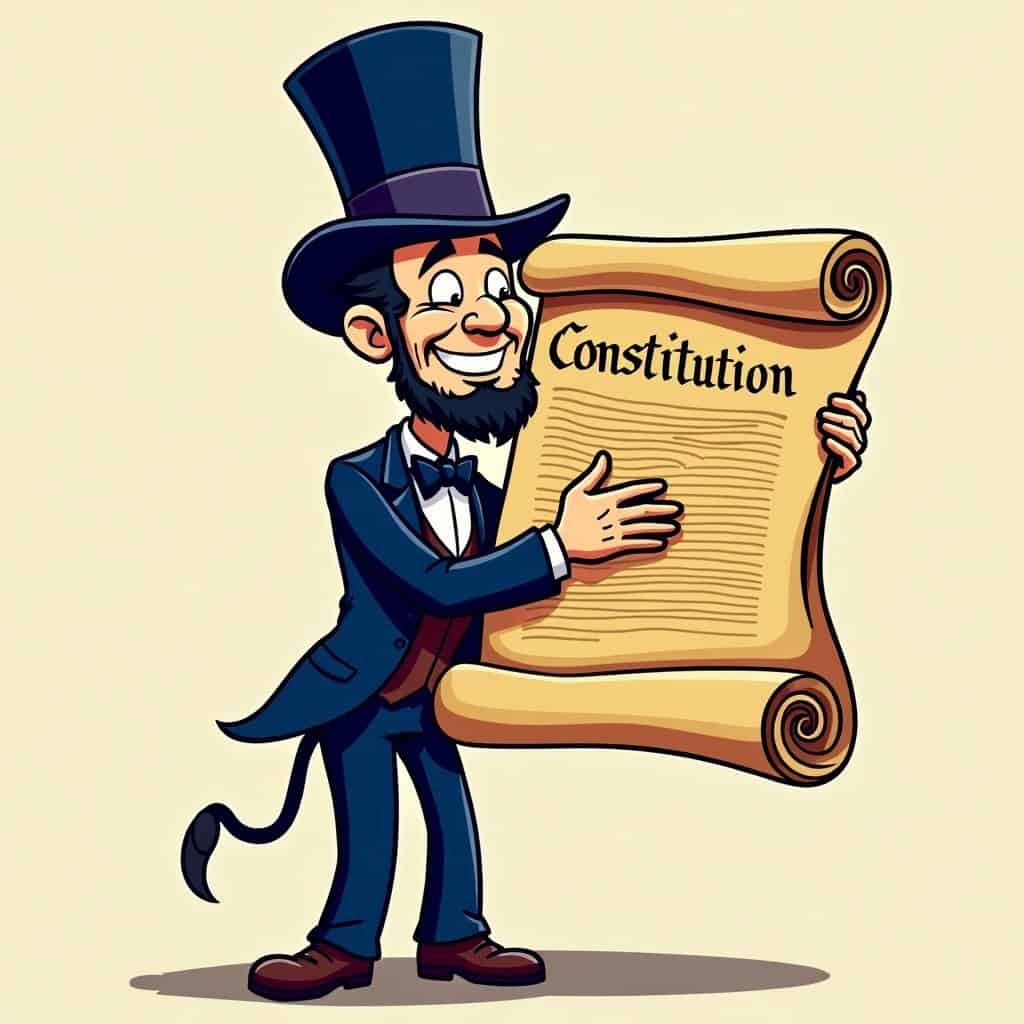Abraham Lincoln, a historical figure who played a pivotal role in shaping the Union’s legitimacy, stands out as a remarkable strategist. While some might perceive him as having liberal tendencies, a closer look reveals his masterful use of conservative principles to unite a nation in turmoil. Picture Lincoln in today’s political landscape; he’d likely find himself at the center of heated debates on fiscal policy, all while sporting that iconic top hat!
Let’s take an unbiased journey through history and appreciate the brilliance of Lincoln’s conservative strategies. This man maintained Union legitimacy effortlessly! And let’s not forget his impeccable fashion sense – that wool suit was a statement in itself. Talk about multitasking in unification and style!
One of Lincoln’s key moves was his understanding of the delicate balance between federal and state power, a cornerstone of conservative thought. He maneuvered through the political landscape like a grandmaster, dealing with states asserting their independence left and right. His approach to federal authority without overpowering state rights showcased an early version of what we now call ‘limited government.’ Imagine him enjoying a slice of libertarian pie while drafting the Emancipation Proclamation – limited government with a side of freedom, anyone?
Lincoln’s Military and Economic Strategies
Lincoln’s adept use of the Union Army highlighted the necessity of a strong defense to uphold national sovereignty, a nod to conservative principles of military strength. After all, what better way to keep the peace than by maintaining a robust military?
Lincoln’s Conservative Economic Policies
- Advocated for a national currency
- Emphasized economic stability
- Met war expenses through taxes and bonds
- Balanced budgets during economic turmoil
In advocating for a national currency, Lincoln emphasized the importance of economic stability, a move that aligns perfectly with conservative values of market foundations. He balanced the economic ship amidst turbulent seas!
Let’s not overlook his clever approach to fiscal strength. By meeting war expenses through taxes and bonds, Lincoln displayed financial precision with a conservative twist. His fiscal responsibility was strong enough to make even the most frugal penny-pinchers nod in approval! As he navigated through economic storms, he kept the ship afloat with the determination of a bald eagle gripping a sturdy branch in a thunderstorm.
Lincoln’s Conservative Legacy
In securing Union legitimacy, Lincoln exemplified a trait we see in modern Republicans – the belief that government intervention should be strategic rather than sweeping. It’s like tickling a sleeping dragon’s belly: effective but carefully executed.
Lincoln’s perfect recipe for strengthening national identity, fostering economic commonality, and ensuring military readiness has left an indelible mark on conservative thought.
Lincoln’s Conservative Principles
- Fiscal responsibility
- Strong national defense
- Balance of governance
- Limited government intervention
- Economic stability
In conclusion, while Lincoln had broad undertakings, his foundation in key conservative tactics ensured that the union of state and federal tensions wasn’t a chaotic free-for-all. He navigated the fine line between preserving liberty and maintaining national stability with remarkable skill – much like balancing your budget while living next to a tax-enthusiast!
So, here’s to Abe, a perfect blend of intelligence, foresight, and good old conservative values that kept our union as solid as his resolve. The man simply held it all together – Union legitimacy has never looked more presidential!






